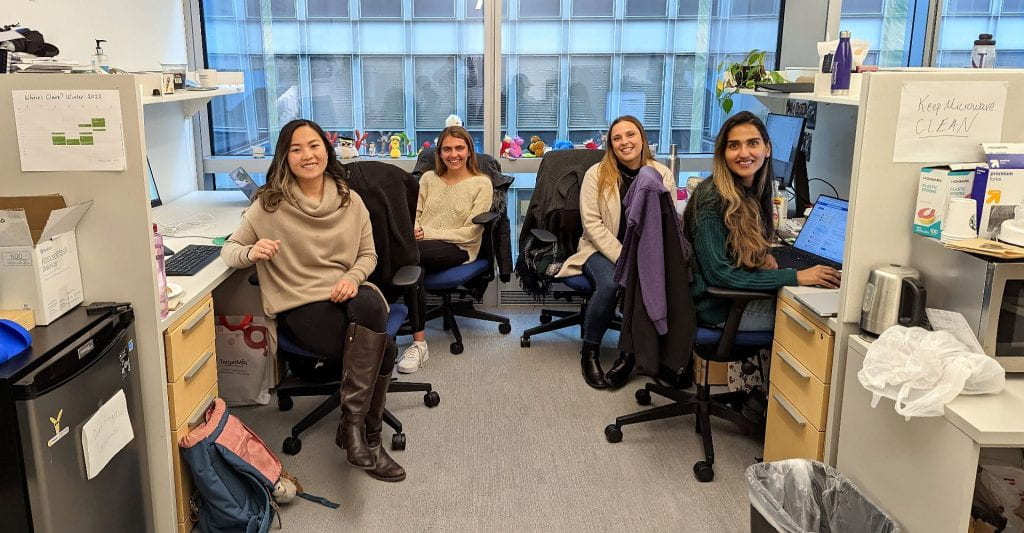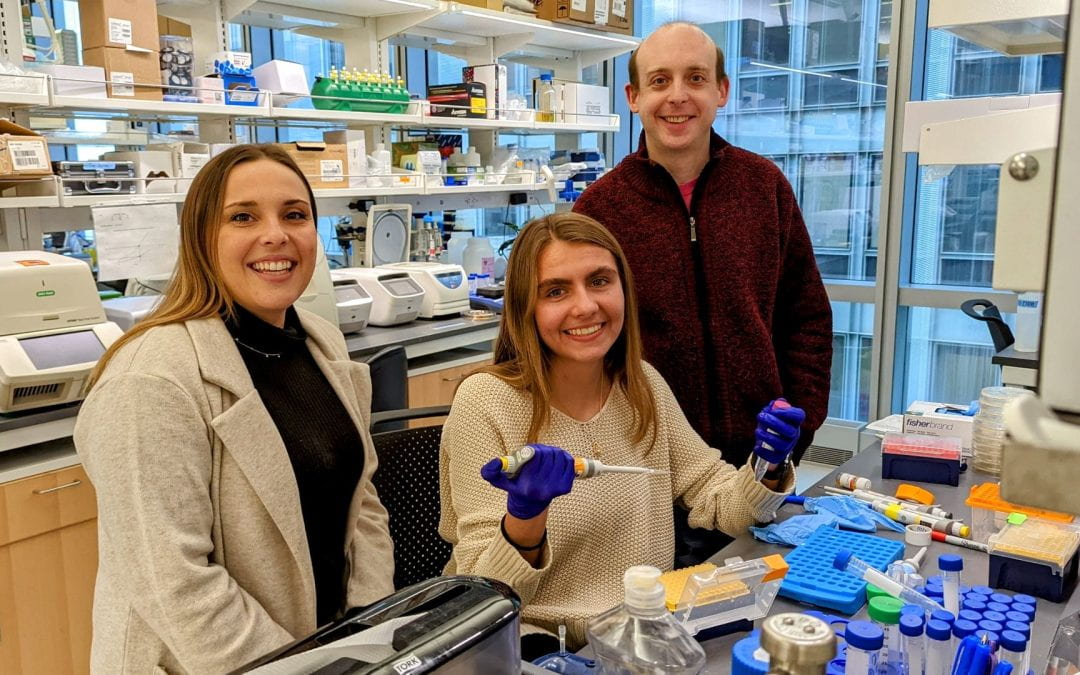Chemistry of Life Processes Institute recently named Northwestern junior Yulia Gutierrez the 2023 recipient of its CAURS Undergraduate Research Award. Gutierrez, a junior majoring in biological sciences and minoring in chemistry, is working in the laboratory of CLP faculty member Gabriel Rocklin (Pharmacology) conducting research on protein aggregation.
As the daughter of parents who both trained in physics, Gutierrez was drawn to the natural world from an early age.
“I grew up going to the Lawrence Hall of Science,” says Gutierrez. The museum is in Berkeley, California, close to where she grew up. “I also watched a lot of PBS Kids©,” she says, “especially the science-themed shows like Fetch with Ruff Ruffman.”
The summer before her senior year of high school, Gutierrez participated in a research project in a geochemistry lab at the University of California, Berkeley, where she studied climate change by analyzing carbon isotopes from samples from the mass extinction during the Cretaceous Period mass extinction.
“I thought the project was so fascinating. I really liked the feeling that my work was relevant and going to be impactful,” Gutierrez says. “The data that we generated could be used in a model to predict today’s climate change based on the atmospheric carbon isotope composition.”
When applying for college, Gutierrez was unsure about her academic direction.
“I wanted to do something related to STEM, but I also wanted to explore other options,” says Gutierrez. “Northwestern offered great opportunities in terms of classes as well as labs. There’s so much research at Northwestern and I knew I wanted to get involved. It was really exciting.”
Last year, Gutierrez worked as a lab assistant in Rocklin’s lab under the mentorship of Cydney Martell, a fourth-year graduate student and former trainee in CLP’s NIH Predoctoral Training Program. Using a high-throughput approach, Martell quantifies aggregation for thousands of proteins to identify the features of a protein’s structure and sequence that contribute to its propensity for aggregation. This information can ultimately be used to design aggregation-resistant proteins for therapeutic purposes. Protein clumping can reduce its effectiveness as a therapeutic.

(Left to right) Labmates Claire Phoumyvong, Yulia Gutierrez, Cydney Martell, and Tanu Priya
Gutierrez aims to determine if proteins exhibit the same aggregation behavior in mixtures, in a high-throughput assay, and by themselves, in a lower-throughput assay. As protein therapeutics are often formulated as pure samples, it is important to understand how a protein will act in isolation and if that behavior is accurately captured in the high-throughput experiments.
“In the high-throughput experiments, you’re studying the aggregation of a lot of proteins in one pot: you’ll have thousands of proteins in a mixture and you study them all at once,” Gutierrez says. “But a protein’s aggregation behavior in a mixture isn’t necessarily indicative of how it will act when it’s in a concentrated sample by itself. My project uses a low-throughput approach to study individual proteins and how they aggregate by themselves.”
The young researcher applied for the CLP CAURS award to challenge herself and gain new skills. Awardees receive a $1,000 grant to support interdisciplinary research with a CLP faculty member and to cover registration and travel costs to the Chicago Area Undergraduate Research Symposium (CAURS) where Gutierrez will present her research next April.
“I’m not the most comfortable speaking in front of a lot of people. The award offered a great opportunity to not only continue my research,” said Gutierrez, “but also continue my personal growth.”
Main image caption: (Left to right) Graduate student Cydney Martell, CLP CAURS Award recipient Yulia Gutierrez and CLP faculty member Gabriel Rocklin.
Story and photos by Lisa La Vallee
